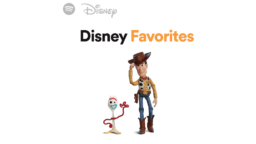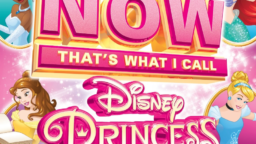Walt Disney Co. has reversed course in its strategy to double down on the metaverse, eliminating a small unit within the company that is developing the company’s metaverse strategies as part of a wide-ranging restructuring.
The Wall Street Journal reported on Tuesday (March 28) that Disney dropped its metaverse division led by Mike White, a former Disney consumer-products executive, affecting roughly 50 employees.
The report comes over a month after Disney executives said the company will be laying off about 7,000 jobs as the group seeks to cut $5.5 billion in costs across the wider company.
“While this is necessary to address the challenges we’re facing today, I do not make this decision lightly. I have enormous respect and appreciation for the talent and dedication of our employees worldwide, and I’m mindful of the personal impact of these changes. On the content side, we expect to deliver approximately $3 billion in savings over the next few years, excluding sports,” Disney CEO Bob Iger told analysts during an earnings call on February 8.
The first round of layoffs started this week, according to a separate WSJ report, citing Iger’s note to employees. The second, larger round of layoffs will take place in April, with the final round expected to begin before the summer starts, the report said.
“I want to acknowledge that there will no doubt be challenges ahead as we continue building the structures and functions that will enable us to be successful moving forward,” Iger said in the note cited by the newspaper.
Meanwhile, the WSJ reported that White, who leads the metaverse division, will stay in the company, although his new role remains unclear.
White joined Disney early last year as SVP of ‘Next Generation Storytelling and Consumer Experience’ to work alongside Disney’s creative teams to “define how consumers experience Disney’s coming metaverse”.
The division’s role was to find ways to tell interactive stories in new technological formats using Disney’s library of intellectual property, the WSJ said. Disney’s extensive library of IP includes Pixar, Marvel Studios, Studio Ghibli and the Star Wars franchise, among many others.
The company disclosed its metaverse expansion plans in November 2021 and in January 2022, the company was reported to have patented technology to build a theme park in the metaverse.
“Today, we have an opportunity to connect those universes and create an entirely new paradigm for how audiences experience and engage with our stories,” former Disney CEO Bob Chapek was quoted by Reuters as saying last year.
Disney’s foray into the metaverse at the time when White was appointed follows Facebook’s rebranding into Meta, which later prompted many other companies to come up with their own metaverse strategies.
Now, the company has also joined a wave of other firms to hit the brakes on their metaverse push amid economic uncertainties.
The Information reported in February that Microsoft had laid off 100 employees at its “industrial metaverse” division, which was created in October. While the newswire reported, citing a person with direct knowledge of the matter, that Microsoft pulled the plug on the project, the company said in a blog post four days later that its industrial metaverse unit will help “create a pathway that will generate enormous data driven insights to unlock product potential and have real impact.”
Also in February, Chinese tech giant Tencent Holdings confirmed that it was making personnel adjustments following reports that the company was laying off staff in its recently established “extended reality” business.
Snapchat, meanwhile, eliminated its Web3 team in the final quarter of 2022.
“As a result of the company restructure, decisions were made to sunset our web3 team. The same team that I co-founded last year with other pirates who believed in digital ownership and the role that AR can play to support that,” Jake Sheinman, head of Snap’s Web3 team, said in September.
Whether Disney will resume its metaverse plans in the future remains unknown. Its CEO, Bob Iger has been vocal about his support for the Web3 space. In March 2022, Iger joined the board of avatar technology company Genies to help the latter navigate its goal of empowering humans to create their own avatar ecosystem in the Web3 space.
“I’ve always been drawn to the intersection between technology and art, and Genies provides unique and compelling opportunities to harness the power of that combination to enable new forms of creativity, expression and communication,” Iger said at the time.
Genies has partnerships with music companies like Universal Music Group, Warner Music Group and Spotify.
Music Business Worldwide



